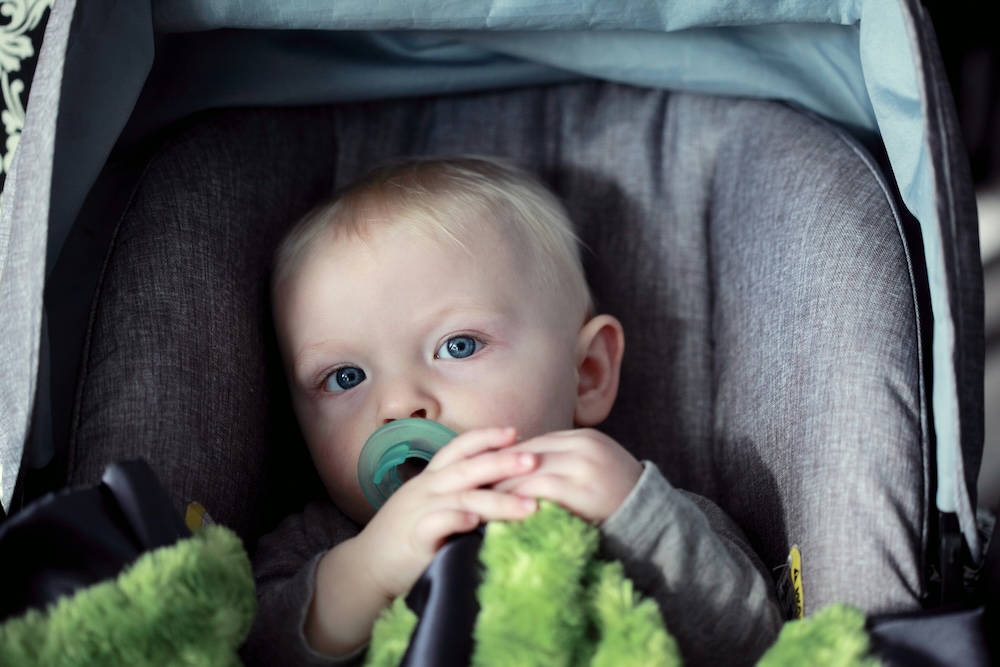February is Children’s Dental Health Month and something to always remember when it comes to your child’s health is that their oral health is important for their overall health. Your child’s dental health begins when they get their first tooth, which typically occurs when they’re between 4 and 7 months old. Once you see their first tooth erupts, you’ll want to start tooth brushing by using a soft-bristled brush that’s specifically designed for babies. Make sure to only use a small smear of toothpaste (about the size of a grain of rice) until they reach age 3. It is also recommended to use toothpaste that contains fluoride, a natural mineral which strengthens the enamel and helps prevent tooth decay.
After your child reaches the age of 3, you can start to use a pea-sized amount of fluoride-containing toothpaste. And when your child is able to brush their own teeth, they can begin to use a normal amount. This is usually when they’re about 5 or 6 years old. At this point, you’ll want to make sure that your child is taught the proper techniques of tooth brushing and good oral hygiene practices. Encourage them to brush their teeth twice a day for 2 minutes during each session. Children should brush their teeth thoroughly from top to bottom and inside and out. You might also want to consider using music or a counting game that lasts 2 minutes to make the cleaning routine more fun and easier to stick to. Keep in mind that the back molars are the most common teeth to get cavities so remind your child to brush all the way back into their mouth to reach those areas. It’s recommended for families to supervise children when they’re cleaning their teeth until they’re about 10 years old.
In addition to brushing the teeth, it’s also essential that your child flosses every day. Flossing removes plaque and food in between teeth where the toothbrush can’t reach. Without flossing, the plaque remains and can harden into tartar, leading to gum disease. For older children with braces or fixed retainers, they will need special types of floss products that are designed to get in between or around braces and retainers.
Rinsing with mouthwash can help maintain your child’s dental health. However, it is not safe to use mouthwash until the child is 6 or 7 years old. Younger children may accidentally swallow it. Before your child starts using mouthwash, teach them how to rinse properly and warn them that mouthwash is never safe to swallow. It’s also best to buy mouthwash that is alcohol-free.
Good oral hygiene practices are very crucial to protecting your children’s teeth. But diet is another key contributing factor for children’s dental health. Added sugar in candies, sweets, syrups, and sugary beverages can cause bacteria on your child’s teeth to grow and can lead to tooth decay. You’ll want to limit their consumption of added sugar and have them brush their teeth soon after consuming any of these items. The longer the residue stays in their mouth, the more damage it can cause. It is also important that your child maintains a well-balanced diet with plenty of calcium and Vitamin D, both of which are necessary to build strong teeth.
When your child comes in for a well-check visit, we will always check in on their teeth and gums to make sure they’re healthy. It is also important that your child keeps up with regular dental visits for routine cleaning and checkups. Having your child’s teeth monitored helps ensure that any potential problems like cavities are addressed early before they can worsen. Children should start visiting the dentist by age one.
Instilling good dental habits in your children can foster long-term dental health success so that your child’s teeth can develop strong and healthy. If you have any questions or concerns about your child’s oral health, please contact our office.



